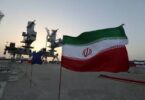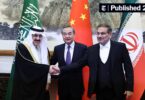Shutting eyes to the extremely grim economic situation reflected in the macro economic imbalances caused by the gross financial mismanagement and rampant corruption, Interior Minister Ahsan Iqbal is now shifting the blame to opposition political parties. He said that politics of sit-in was hampering the country’s economic progress, affecting its productive and efficiency to compete with its regional rivals. The TLYRA protest march was incited and facilitated by Punjab Chief Minister Shahbaz Sharif to lay siege to the federal Capital Islamabad.
It is not possible to black out the World Bank warning to the present government political and economic managers to address the macro economic imbalances which include massive current account deficit because of persistent decline in exports, extravagance in current expenditure and unmanageable public debt which the international lending agencies described a reckless borrowing for non productive activities. Creating a smoke screen with his usual verbosity and jugglery of words without substance, the Interior Minister told reporters in Tarparker that Pakistan should be competing with India and Bangladesh among other regional competitors.
Mr. Iqbal might have forgotten the fact that Bangladesh owes not even a single Taka foreign debt to multilateral donor agencies donors. The burden of foreign debt on Pakistan has piled up to $ 90 billion and the cumulative foreign and domestic debt has reached Rs. 28 thousand billion because the government has violated the Fiscal Responsibility and Debt Limitation Act 2005. To ensure sanity in borrowing on the part of present government, World Bank has pegged disbursement of $ 400 million subject the approval of Public Finance Management Bill. Debt serving now devours a lion share of federal budged every year, leaving scarce resources for the implementation of Annual Public Sector Development Program. The price of electricity in Bangladesh is Rs. 3 per unit for all consumers whereas the electricity is more than Rs. 25per unit in Pakistan. Likewise, there are very few indirect taxes in that country as compared to a barrage of very regressive indirect taxes in our country. That is why Bangladesh exports only textiles worth $ 27 billion despite the fact that a single cotton plant does not grow there besides reasonable quantum of exports of jute, tea leaves, fruits and light engineering products. The total exports of Pakistan from a number of items were $ 20 billion last year.
There is no comparison between the high growth Indian and stagflation hit Pakistani economy. Ex Governor State Bank, Dr Ishrat Hussain described India’s economy as the economic backyard of Chinese economy and many economists believe that Indian economy will be the fast growing economy in Asia in the coming decades. The energy inputs are inexpensive in India. The electricity tariff is Rs. 5 per unit and gas is made available at $ 7per mbtu. Because of the shady LNG agreement with Qatar the gas tariff in Pakistan is $ 11per mbtu. The sky high energy prices have eliminated the comparative advantage of most of our export items. It was the precarious economic situation that compelled the Governor State Bank Tariq Bajwa to give in- camera briefing to the National Assembly Standing Committee on Finance to hide from the people the alarming trade gap, which is more than $ 12 billion. He may have told the parliamentary body the reasons behind the weakening rupee and grave challenges to the economy in the months ahead. The illusion of words cannot conceal these bitter realities that the country has fallen into the debt trap; 800 million people are living below the poverty line, and 600 million are confronted with the day to day problem of food insecurity. Founder of Classical School of Economic thoughts, Dr.Adam Smith had rightly said, “If wishes were horses, beggars might have taken all time ride on them.”This saying sums up the whimsical and hollow philosophy of the Minister for Interior, Planning and Reforms. Anyway truth reveals itself sooner or later.






